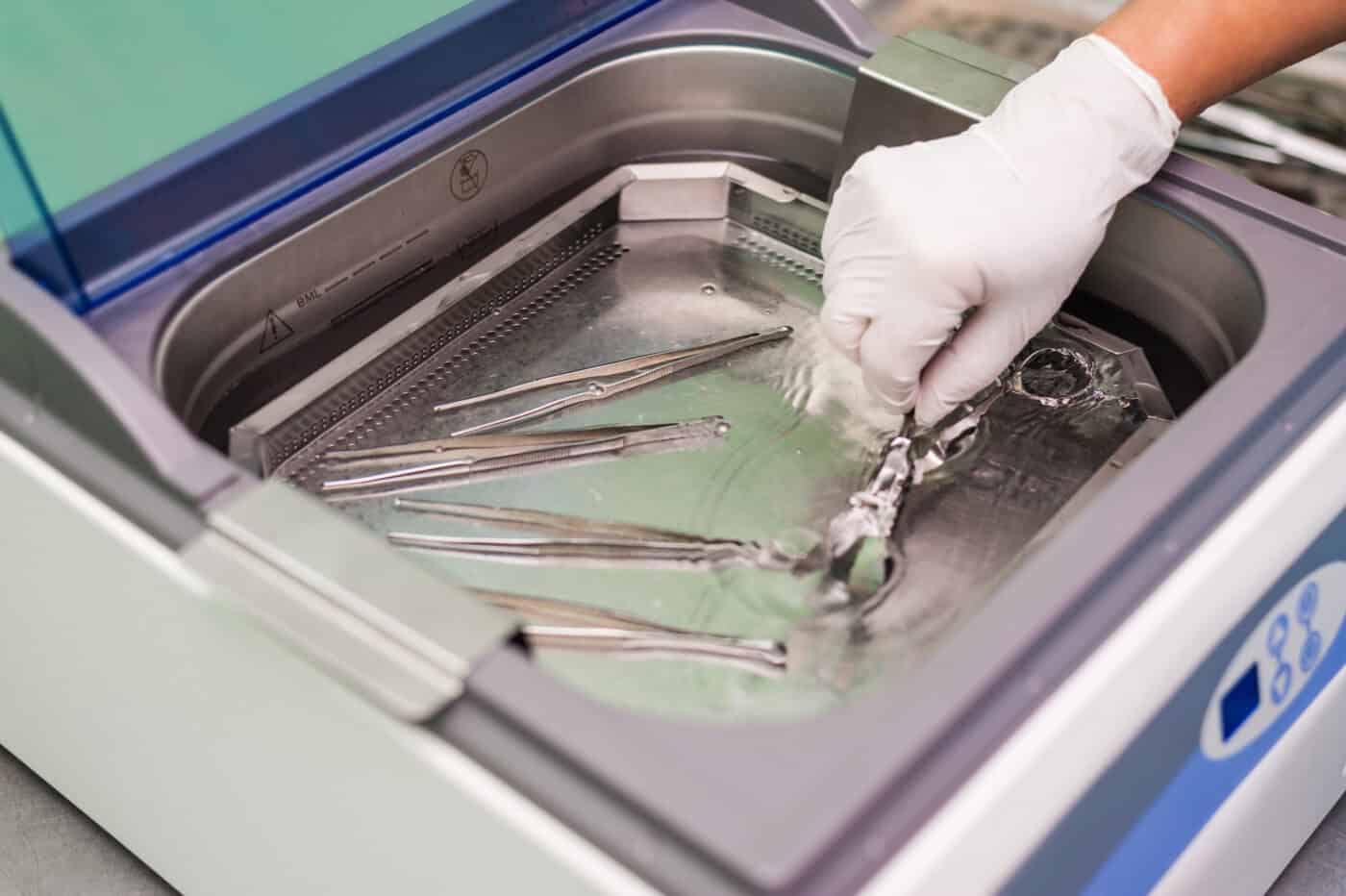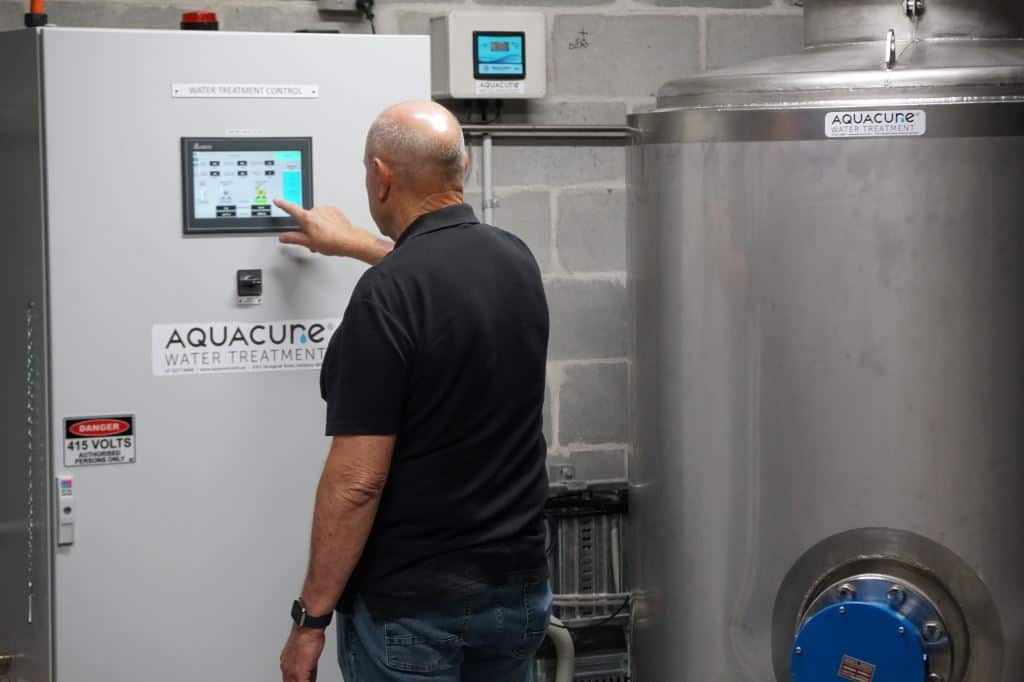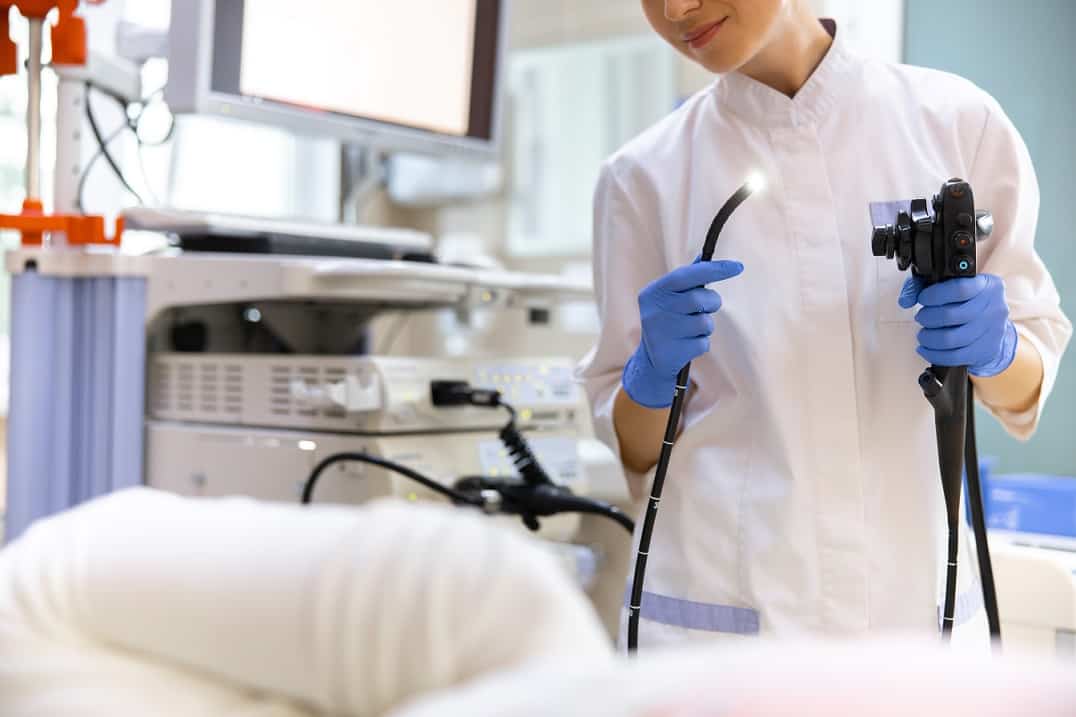Aquacure Water Treatment can directly manage any style of water treatment solution, including RO technology, that is required for your project. We specialise in customised design, build, supply, installation and maintenance.
If you are searching for a complete water treatment solution, with or without Reverse Osmosis (RO), our specialist team can recommend a system specifically for your clinic. Aquacure Water Treatment currently supplies and maintains water purification systems for Endoscopy Units across our region.
Aquacure offer the best pure water solutions to feed:
- Automated Endoscope Reprocessors (AER)
- Washer-Disinfectors (WD)
- Sterilisers

According to the National Health and Research Council of Australia, there are around 200,000 healthcare-associated infections in Australian acute healthcare facilities each year.
Water treatment plays a crucial role in minimising the spread of infection and ensures safety standards in health care settings are met. In any healthcare setting, all sterilisation and disinfection equipment relies on a supply of pure water, free from particles, dissolved contaminants, bacteria and bacterial endotoxins.
Endoscope Reprocessing requires water used in the hospital’s Endoscopy Department Cleaning Room and the Automated Endoscope Reprocessor (AER) to meet the highest standards. An AER is used to disinfect and rinse Thermolabile Endoscopes with purified water in compliance with the Australian Standard.
High-quality water must be used during the final rinse process to prevent endoscope recontamination. If standards are not upheld, it could lead to an infection of the following patient due to inadequate cleaning of the endoscope. Endoscopy units and RMD reprocessing water require special consideration as outlined in the Australian Standard AS/NZS 4187:2014 Amdt2:2019. The Cleaning Process water for Endoscopy must meet the requirements of Clause 7.2.3.1 and the Final Rinse water for Endoscopy must meet the requirements of Table 7.3 in AS/NZS 4187:2014 Amdt2:2019.
From the 2019 Amendment of AS/NZS 4187:2014, Final Rinse water for Endoscopy was recognised as a separate and different requirement from the Final Rinse water requirements in the CSSD, and there is now a new specification exclusively for the Endoscopy Department: Table 7.3 FINAL RINSE WATER–WASHER-DISINFECTORS IN ACCORDANCE WITH ISO 15883-4 FOR THERMOLABILE ENDOSCOPES.

What Is Reverse Osmosis (RO)?
Reverse Osmosis (RO) units play a crucial role in water purification as this technology can be used to effectively remove a wide range of unwanted dissolved contaminants. RO is a process, not a water type: Some refer to the product of this process as ‘RO water’ though a better general description of the water type in medical instrument reprocessing is ‘demineralised water’. The RO process removes most salts and minerals from water. This is often desirable because, when present in higher concentrations, salts and minerals can cause corrosion and scale, particularly where water is heated.
Unfortunately, demineralising water can create other problems, though, including the potential for corrosion of some metals which are common in plumbing systems (copper and brass). Demineralised water is not necessarily sterile, and microbial problems including biofilm formation can create risks in endoscope reprocessing. Further management of microbial water quality, including regular disinfection, is usually required in order to maintain suitable water quality for Endoscope reprocessing.

Is Reverse Osmosis Required For Endoscopy?
RO is not specified by the Standard, and RO may not always be the best solution for meeting the water quality requirements which are specified. There are many factors to consider, including incoming water quality when meeting the mandatory requirements of Table 7.3 in AS/NZS 4187:2014 Amdt2:2019 as well as practical process considerations and the requirements of the AER manufacturer. Installing a Reverse Osmosis system can be a difficult and often expensive decision to make. Although there are times when RO is required, there are cases in the Endoscopy Department where RO may not be the best solution. At Aquacure, we believe that every healthcare setting should be assessed on a case by case basis to create a custom water treatment plan to ensure the most reliable and cost effective solution for each individual clinic.

How Does Reverse Osmosis Work?
The technology uses a semi-permeable membrane to separate and remove most (up to about 99%) of the dissolved and other contaminants which can include:
- Dissolved solids, salts, minerals, metals
- Suspended solids including small particles
- Bacteria
- Pyrogens
- Organics
- Colloids
If the required Australian standard is already met, you may not need the addition of a RO system. However, there are times when an advanced RO system, like our professional team has been building for over 30 years, might be the best option.
At Aquacure Water Treatment we pride ourselves on making RO systems and other water treatment solutions for Endoscopy Units right here in Brisbane QLD, Australia. We offer a site-specific analysis where our expert team can advise your facility on the right water treatment plan.
Sources:
https://www.nhmrc.gov.au/about-us/publications/australian-guidelines-prevention-and-control-infection-healthcare-
https://www.healthcare-spaces.com/wp-content/uploads/2021/09/AQUACURE-Endoscope-Reprocessing-Water-Paper-2021.pdf
https://www.aquacure.com.au/products/reverse-osmosis/
